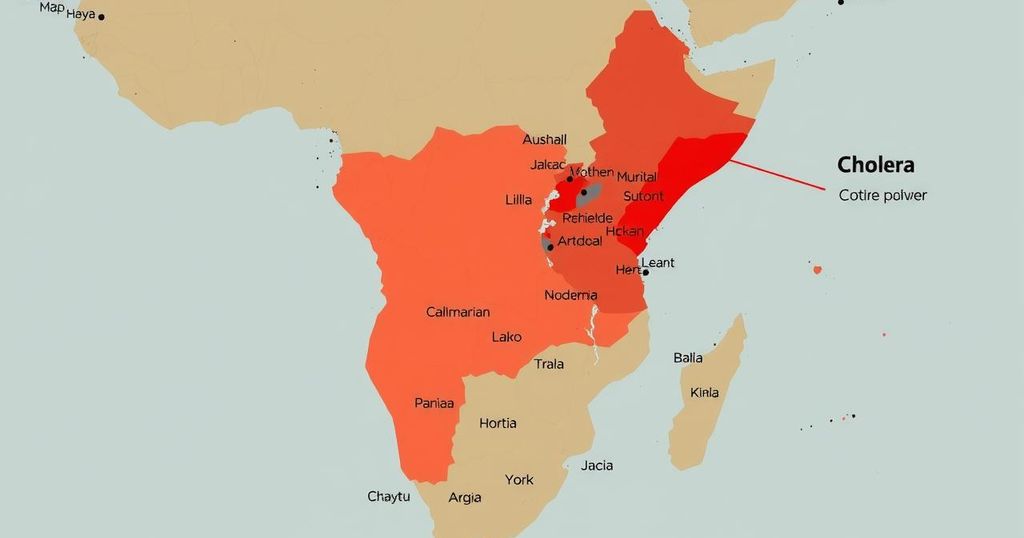Cholera Outbreak in Africa: Death Toll Exceeds 2,400, Urgent Response Needed

Cholera has claimed over 2,400 lives in Africa as of mid-May 2025, with South Sudan, DRC, Angola, and Sudan being the most affected countries. The Africa CDC is calling for urgent coordinated responses while addressing root causes like lack of clean water and ongoing conflicts that hinder health systems. Strategies learned from the management of mpox are being applied to combat the cholera crisis, emphasizing collaboration and capacity building in local health sectors.
As of mid-May 2025, the cholera death toll in Africa has tragically surpassed 2,400, with the continent reporting a staggering 115,513 cases, according to the Africa Centres for Disease Control and Prevention (Africa CDC). The hardest-hit countries include South Sudan, the Democratic Republic of the Congo (DRC), Angola, and Sudan. South Sudan stands out with 848 deaths attributed to the outbreak, making it the worst affected region.
During an online media briefing, Yap Boum II, serving as the deputy incident manager for mpox at the Africa CDC, called the situation in these four countries “severe.” Boum emphasized the alarming reality that these nations account for a dominating 84 percent of all reported cholera cases, and 92 percent of the fatalities this year. In addition to South Sudan’s grim figures, Angola and the DRC have recorded significant losses of 609 and 513 deaths, respectively.
The Africa CDC has pointed to a lack of clean and safe water as a major factor in the ongoing cholera spread, compounded by fragile health systems across Africa’s nations. These challenges are made worse amid a slew of other disease outbreaks facing the continent right now. An urgent collective response is imperative to combat cholera, Boum urged, saying, “A coordinated regional and continental response is urgently needed.”
So, what does this look like? The response is drawing on lessons learned from handling previous health crises, specifically mpox, which is now seen as largely under control due to effective collaboration strategies. Dr. Ngashi Ngongo, principal advisor to the Africa CDC’s director general, reiterated that the same methods used in managing mpox will be applied against cholera. “Lessons learned from the mpox response, especially the need for close collaboration with other partners, will now be applied to fighting cholera,” he said.
Additionally, between January 2024 and March 2025, UNICEF noted that over 178,000 cholera cases were confirmed in 16 countries across eastern and southern Africa. This led to more than 1,600 deaths, and again, Angola, DRC, South Sudan, and Sudan contributed to over 90 percent of these cases. They pointed to conflict as a significant factor complicating control efforts.
As for solutions, the Africa CDC is now aiming to replicate its mpox success through the Incident Management Support Team (IMST), which involves collaboration with the World Health Organization and 26 other partners. This approach has been praised for its strategic and coordinated implementation. Ngongo announced plans to strengthen the key areas of surveillance and laboratory capacity so that the continent is better equipped to address ongoing public health challenges.
Despite these efforts, experts are speaking out about the need for addressing the root causes of cholera. This means improving water quality, sanitation, and hygiene in addition to tackling the barriers posed by ongoing conflict. Furthermore, Ngongo stressed the necessity for a stronger African pooled procurement mechanism to boost the local production of cholera vaccines, as the continent has faced significant shortages in recent years.
The cholera crisis in Africa is dire, with a mounting death toll attributed to outbreaks primarily in South Sudan, DRC, Angola, and Sudan. The Africa CDC and partners are working toward a unified response, drawing from past successes. However, solving the problem involves not just immediate response efforts but tackling long-standing issues of water quality and local health care systems. As experts urge, a multi-faceted approach is crucial for effectively controlling cholera in the region.
Original Source: eastleighvoice.co.ke







